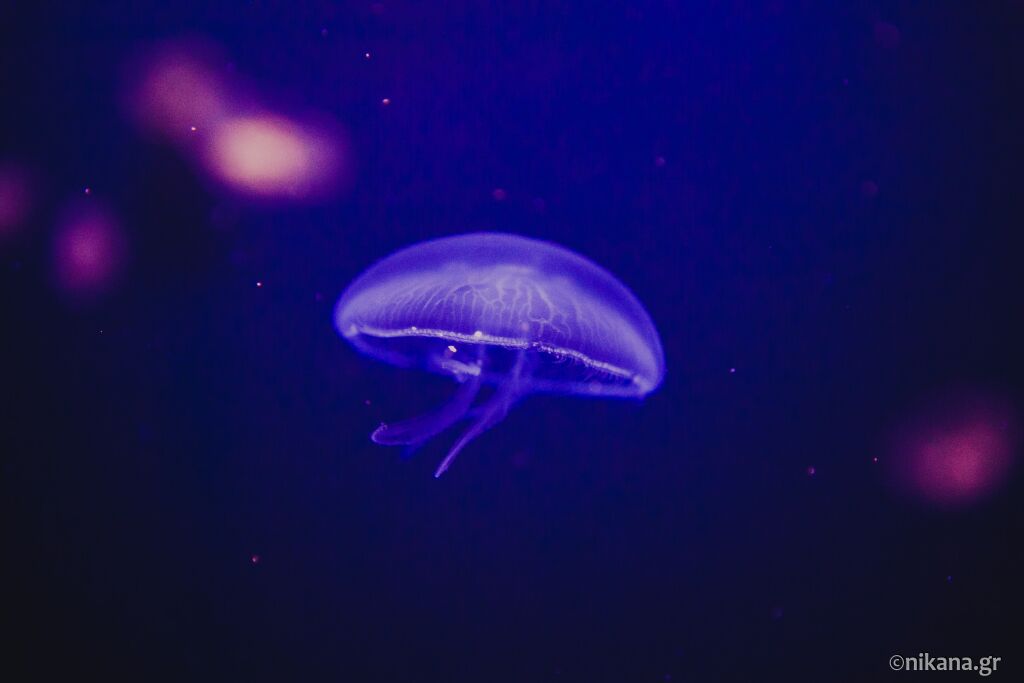Are there really purple jellyfish in Greece and what to do if get stung?
Lately, numerous media outlets have been reporting on the emergence of various dangerous jellyfish across Greece, and we get a lot of questions on the subject every day. Since the beginning of June, our team has visited many locations in Greece, bathed on various beaches, talked and exchanged experiences with other tourists, and we convey our experiences. Throughout Sithonia, Tassos and Cassandra, none of the people of Nikana saw any jellyfish, but we did not hear that any of our guests and other tourists had encounters with the same.
There have been numerous reports of purple jellyfish in the Cyclades, in the Ionian Sea, in the Peloponnese and some parts of Crete, but according to recent reports, the Ionian Sea currently has almost no problem with jellyfish, unlike the Aegean sea, where they appear sporadically. So far, there is no record of a large population of jellyfish, except for one or two people who have complained on some beaches that the jellyfish have burned them. That means this phenomenon is definitely random, it came from someplace, it’s going to stay for a few days and then disappear again.
We will certainly monitor the experiences of our guests, so if jellyfish appear somewhere we will report, but what we think is more important at the moment is to share with you tips on how to react if you happen to have a close encounter and the same one burns you.
If you do happen to be on a beach where there are jellyfish and the same one burns you, it’s best to take the following steps:
1. Step out of the sea to the beach\,
2. Wash that place where you’ve been squeaed with plenty of seawater\,
3. Remove the remains of the jellyfish with tweezers or credit cards — never with your hands.
4. What helps: ice\, painkillers and cortisone cream.
You can inflict an injury on the paste that is made by mixing 2 tablespoons of baking soda and 2 tablespoons of seawater. Carefully apply this paste to the wound and leave for a few minutes. You can apply this cold paste for 10 minutes with a break so the skin doesn’t get hurt.
Go to the Emergency Room if you have symptoms such as shortness of breath, hoarseness or if you are not feeling well.
Avoid using:
- Plain water (either from tap or bottled), vinegar, alcohol and ammonia,
- Don’t rub the wound with sand or a towel and
- Never use warm or compressive bandages.
Don’t look too much at the media and let them intimidate you, but prepare well and arm yourself with information about what to do if you get burned from a jellyfish. We certainly wish you a nice holiday and to go without unplanned events.







Post a Comment
NOTE
All your questions in the comments will receive an answer via email so check your inbox shortly after you posted comment. For more detailed questions and responses, contact us via mail nikana@nikana.gr.